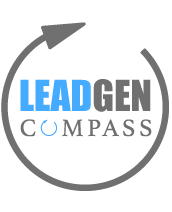How to Optimize the Speed of Your Small Business Website and Why it Matters
The page speed and performance of your small business website are critical to the user experience. If your site moves too slow, visitors will abandon your website in droves. This is especially critical when you remember that every visitor represents a potential customer.
To optimize your website’s performance and speed, LeadGen Compass suggests the following:
- Defer loading content. Instead of loading every image when a user first visits a web page, display thumbnails of the images. When the user clicks on a thumbnail, only that image will update the page, preventing wait times for all of the pictures to download.
- Employ external JS and CSS files. When a user loads your web page for the first time, the browser will cache external resources like CSS and JavaScript files. Therefore, instead of inline JavaScript and CSS files, place them in external files. Having everything defined in your main CSS file lets the browser do less work when rendering the page since it already knows all the styles to apply.
- Put a caching system in place. A caching system means your site will only have to create the content once instead of every time your users visit the page. And since caching systems periodically refresh their caches, even constantly-changing web pages can be cached.
- Don’t resize images in HTML. Instead of resizing images using HTML and being forced to use its width and height attributes, resize them using an image editor.
- Never use images to display text. Using images to display text increases web page load time and makes that text useless for SEO.
- Use the correct file format to optimize images. To avoid quality loss, be sure to select the right image format. Unless you need the image transparency that the PNG format offers, JPG format will usually display that image in smaller file sizes.
- Optimize your code writing. When you write your code efficiently, you reduce the file sizes of your HTML and CSS documents. These documents will be easier to maintain, as well.
- Load scripts at the end of pages. If your scripts load at the end of the page rather than at the beginning, the browser will render everything before getting started with the JavaScript. The result is web pages that feel more responsive because JavaScript blocks anything below it from rendering until it has finished downloading.
- Optimize web caching. Make sure that things like CSS files, JavaScript files, and images are cached by the web browser in the most efficient way possible.
When your website’s speed is optimized, your SEO and improve user experience also will be strengthened. In the long run, this will improve conversion rates and, ultimately, your bottom line.
As we move past 2020 into 2021 we know that while the world will return to normal in many ways there are some things that will be changed forever. To get a headstart on 2021 and what comes next contact LeadGen Compass to set up a more secure future for your company.
Give us a call at 402-682-7418 or visit www.leadgencompass.com



